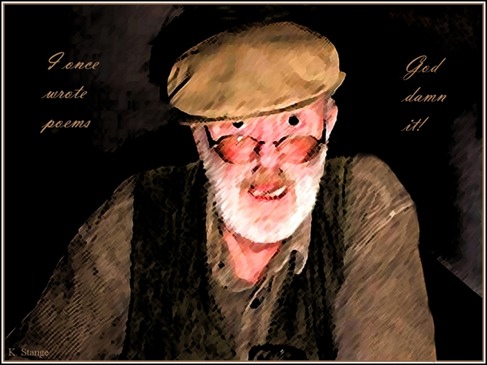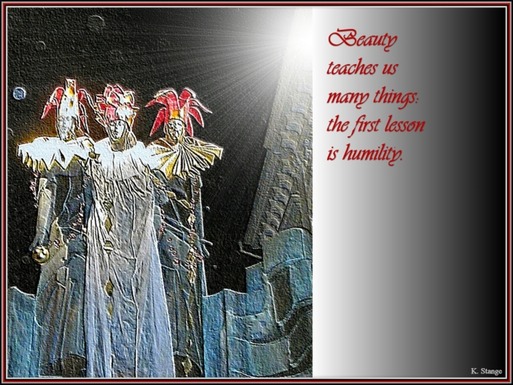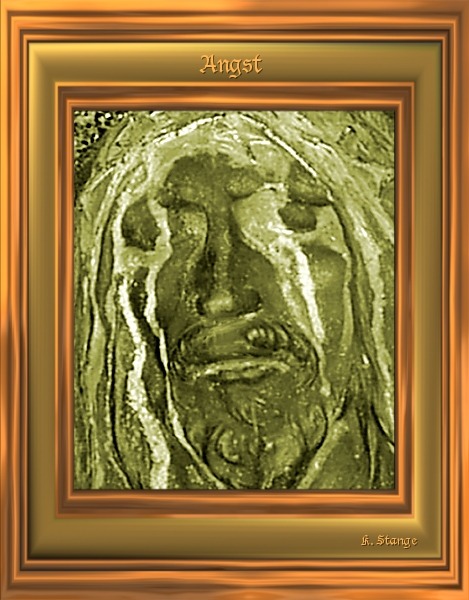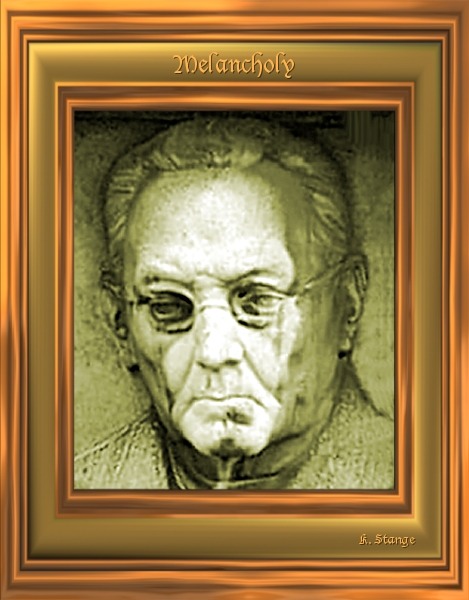The Contradictions In Our Valuation Of Art
The Contradictions In Our Valuation Of Art
Still thinking about how ‘worthless’ art is considered to be, and the contradictions involved in valuing it. The great majority of writers and artists can’t make a decent living off their work. So what do they do to put bread and wine on the table? They take ‘day jobs’ to support their habit. Maybe they teach writing or art. People will pay for creative writing or art classes, while they won’t pay the writers or artists for the products of their labours. Some summers I’ve taught Creative Writing, for which the students coughed up some substantial cash, but when I’ve asked them what new books they’ve been reading, it is evident they don’t spend anything approaching that amount on buying books!
It gets even more absurd in Academia. A professor of literature starts out making a very respectable salary and can increase that salary and climb up the academic pay scale by publishing ‘scholarly’ papers about writers and their work. Meanwhile, the writers they write about have to take day jobs to survive. A survey by The Writers’ Union of Canada of their members (all professional writers with commercially published books) found that more than two-thirds of them had a average annual net income from their writing of less than $5000 a year!
There is something seriously wrong with our values.
Offering Of Free (Priceless) Books
Offering Of Free (Priceless) Books
Writers just want to be read. Here is a ‘limited time offer’. (But of course time limits everything.)
I’m giving away some of my books here.
A Great Oak Has Fallen
"A Great Oak Has Fallen"
The great poet Seamus Heaney will write no more.
http://www.cbc.ca/news/arts/story/2013/09/02/seamus-heaney-funeral.html
The Frontier Of Writing
Crossing The Frontier Of Writing
Poetry is at the frontier of writing, and this poem by Seamus Heaney does what many great poems do: unveils a universal truth behind vivid images of harsh reality.
From The Frontier Of Writing
The tightness and the nilness round that space
when the car stops in the road, the troops inspect
its make and number and, as one bends his face
towards your window, you catch sight of more
on a hill beyond, eyeing with intent
down cradled guns that hold you under cover
and everything is pure interrogation
until a rifle motions and you move
with guarded unconcerned acceleration—
a little emptier, a little spent
as always by that quiver in the self,
subjugated, yes, and obedient.
So you drive on to the frontier of writing
where it happens again. The guns on tripods;
the sergeant with his on-off mike repeating
data about you, waiting for the squawk
of clearance; the marksman training down
out of the sun upon you like a hawk.
And suddenly you're through, arraigned yet freed,
as if you'd passed from behind a waterfall
on the black current of a tarmac road
past armor-plated vehicles, out between
the posted soldiers flowing and receding
like tree shadows into the polished windscreen.
--Seamus Heaney
A collection of Heaney’s poems can be found here:
http://www.poemhunter.com/seamus-heaney-3/
A Poet Remembered
A Poet Remembered
A portrait I did of my friend, the late Clifton Whiten, in his retirement from the literary life.
For anyone regularly reading my Writing On The Wall blog, you can bookmark it:
http://www.kenstange.com/kenstangeweb/writing-on-the-wall/
Your Man Friday’s Ideas: Smart Radio On Demand
Your Man Friday’s Ideas: Smart Radio On Demand
Some say conventional radio is becoming obsolete. TV dealt the first serious blow. And now the digital revolution seems to be delivering the coup de grâce. But maybe not. Radio is adapting to the Internet age. The Canadian public radio station (CBC) and the American public radio station (NPR) both record most of their broadcasts and make them available as podcasts for downloading. It may not literally be considered ‘listening to radio’ if you are listening instead on your computer or smart phone—and not even in ‘real time’. Nevertheless these are the original radio broadcasts. And magazines too are moving toward podcast publication. Podcasts may very well be the future for serious radio (and far less susceptible to being dumped because of their relatively smaller audience and allegedly elitist nature). Here are three really great regular podcasts, and you don’t have to be tuned in at a certain time to hear them. Just download them and listen at your convenience. (To get past episodes and maintain a personal archive, iTunes offers free subscriptions to them all.)
Links here: http://kenstange.com/yourmanfriday/?p=1419
‘Dirty’ (Poetry) Books
‘Dirty’ (Poetry) Books
I recently read a fine collection of poems by Michael Dennis entitled Arrows Of Desire, and was again reminded of what I know I people who don’t read poetry (which is most people) think poetry is like. It is common knowledge that current novels often are quite explicit, and, incidentally, seem to sell well, independent of their literary value. But that poetry can be just as erotic doesn’t fit with its strait-laced stereotype. This is sad, because ‘dirty books’ have considerable market value and poets would appreciate a larger market—even if their readers’ initial interests were only prurient.
Here is what Yann Martel (author of Life of Pi, winner of the Man Booker Prize) had to say about Arrows Of Desire by Michael Dennis.
“Michael Dennis wrote Arrows Of Desire with his cock, and readers will be grateful, for that that cock is driven hard by true poet’s heart. Lust is honest, unflinching, needy, sad, joyous, and unmistakably human—as are these poems, as is this poet.”
Check out Arrows Of Desire here: http://gsph.com/index.php?route=product/product&manufacturer_id=110&product_id=310
The High Art Of Vulgarity
The High Art Of Vulgarity
One definition of vulgarity is “making explicit and offensive reference to sex or bodily functions”. So it is well suited to poetry, because a lot of good literature is based on what could be called ‘shock value’. It stops us in our reading tracks and makes us pay attention.
“Explicit reference to sex or bodily functions” is important, because these “functions” are important. However, it usually only occurs in humour and the arts. And I can see where it might be consider inappropriate to start a casual conversation with a new acquaintance about your unusual sexual preferences or to get up from Christmas dinner and announce that you have to take a shit. But dirty jokes and erotic passages in literature are widely appreciated. (If they offend some folks, that’s their problem—and should be treated.)
An English verse form I find particularly interesting is the limerick, because its metrical structure seems to inherently suggest humour, just as iambic pentameter inherently seems serious. (Technical note: this seems to be related to the ratio of accented to unaccented syllables.) And there is no doubt that the best, cleverest limericks could be labeled ‘vulgar’.
Here is one that says something about people’s ambivalence (or hypocrisy?) about ‘vulgarity’ and sex.
There was a young girl named
Sapphire,
who succumbed to her lover’s
desire,
she said “It’s a sin,
but now that it’s in,
could you just shove it a few
inches higher?”
Reading Ribald Rabelais
Reading Ribald Rabelais
Discovering the low road to high literature. It’s from Freezing Fire, a work-in-progress.
No Escaping Lust
No Escaping Lust
The liquid clinging
to your body
is wantonness—
and there is no
stairway to haven
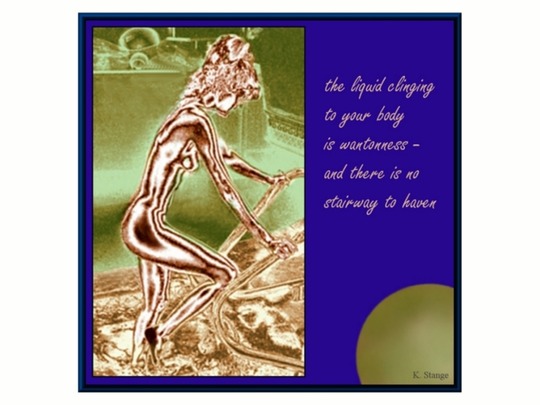
http://kenstange.com/gallery/main.php?g2_itemId=435&g2_imageViewsIndex=1
Good Art Like Good Science Is Offensive
Good Art Like Good Science Is Offensive
“One of the more insidious justifications for censorship is protecting people from being offended. When fear of offending takes precedence over freedom of expression, any hope of significant discourse is gone. All significant ideas gave offence, with the most significant giving the most offence. Consider Socrates, Galileo, Darwin.”
Poetic Language
Poetic Language
All verbal communication has two features: the words, vocabulary; and the way the words are structured, what could be called syntax. There are conventions associated with both vocabulary and syntax, and they can be strictly adhered to or not, depending on the nature of work. In academic papers sentences that conform to the conventions of formal writing and ‘acceptable’ vocabulary are usually demanded. (You won’t find writing like this in an academic journal: “The Bard is fucking brilliant. You gotta just love the way be screws with our heads with them kinky plots of his.”)
In poems on the other hand, there are no ‘unacceptable’ conventions regarding syntax or vocabulary. The poet may choose to follow the metric and rhyme scheme conventions of, for example, a sestina or sonnet, or instead just devise a new one—or even reject all conventions. Likewise with vocabulary, with word choice. There are no unacceptable words. Foreign words, made-up words, slang, vulgarities, all are acceptable. And all appear in great poems. Yet there remain those who believe these aren’t ‘poetic’.
Poetry prudes think all dictionaries, other than the first edition of the OED, are Pandora Boxes, when actually they are treasure chests for a poet. I love finding new words to add to my writer’s toolbox. I love dictionaries of vulgarities, philosophical terms, street slang, imported words, and especially scientific terms. It is this last that seems to be most underutilized. I derived great pleasure in combining the rich vocabulary of science with earthy language in my book, The Sad Science of Love. (Shameless plug)
Your Man Friday’s Ideas: Defining intelligence
Your Man Friday’s Ideas: Defining intelligence
When people try to define intelligence they often seem to make a number of questionable assumptions. One that certainly hasn’t stood the test of time is that it is a characteristic only humans possess. Still, descriptions of someone who seems to lack this characteristic often reference non-human things. They include “bird brain” for people who do dumb things (like the guy who recently used a bat to try to rob a gun shop), “a vegetable” for some unfortunate person who shows no evidence of higher cortical activity, and “thick as brick” or “blockhead” for someone who can’t seem to understand simple instructions (such as the fellow who insisted to the cop that he really was only going one way on that one-way street). But is it possible other animals, even plants or inanimate objects have something that could be considered intelligence?
Links here at Man Friday site: http://kenstange.com/yourmanfriday/?p=1425
Bad Writing
Bad Writing
Given that there are six billion of us, and the majority have access to writing implements, it shouldn’t surprise me as much as it does that there are so many really superlative writers—and so much really bad writing. Now I know that all aesthetic judgments are to some extent subjective, but that doesn’t mean there isn’t a lot of consensus or any standards. Any prof can tell an A term paper from a D paper. I have often been tempted to annotate a student’s paper by quoting Truman Capote’s snarky comment on Kerouac’s books: “That’s not writing, that’s typing.”
My wife always told her students in her composition course that she wouldn’t have to teach them most of what she was teaching them if they only read once in a while. This is so true. How can you do anything well if you haven’t seen it done well? It is the epitome of presumption to write for anyone other than yourself if you don’t read. There would be a lot less bad writing if more people opened a few books before they opened their notebooks.
Beauty Teaches Us Many Things
Beauty Teaches Us Many Things
http://kenstange.com/gallery/main.php?g2_itemId=38&g2_imageViewsIndex=1
Advice To Young Poets
Advice To Young Poets
Do not show your poems to friends and family for evaluation—except in the very unlikely case that they actually read poetry. I speak from experience, for I’ve had many hopeful poets show me their efforts. They often put the poems for which they’ve had the most positive feedback at the top, and almost without exception these are their weakest ones. The stuff with potential is usually at the bottom of the pile. What young research scientist would consult his parents about the quality of his statistical analysis? In that case (unless they were scientifically savvy) they’d beg off. Unfortunately, people don’t do that when it comes to the arts.
A Culturally Harmful Gift
A Culturally Harmful Gift
Never give a bad poet a guitar. He or she might become yet another painfully self-indulgent “singer/songwriter”. However, you can give a really good poet a guitar, and he or she might be able to bring poetry to a wider audience and amazingly also make a living enriching our cultural landscape; e.g., Leonard Cohen or Joni Mitchell.
Ban Artists From Writing Artist Statements
Ban Artists From Writing Artist Statements
These are conventionally included with submissions for an exhibition and often are included in the show as a silly interpretive guide for visitors. Most artists are not writers, and, besides, artists shouldn’t have to justify their work. And when they do so in their Artist Statements, they usually sound ridiculous—especially so if any ‘appreciation’ of the work is dependent on wading through their politically correct ‘art speak’ justification for what they wrought. There are exceptions, of course, but only too often good art is made to seem ridiculous if one takes seriously the proposed rationale for it. And, alas, sometimes often insipid and vacuous art gets valuable exposure on the basis of some grandiose and overblown expression of its significance in an Artist Statement that bamboozles the selection committee.
Art Critics Criticized
Art Critics Criticized
The problem with appreciating ‘Modern Art’ isn’t the art. It’s those critics who make a living writing gibberish about the art—and a better living than did most of the artists they write about. An artwork isn’t pretentious nonsense just because pretentious nonsense is written about it. One has to wonder what Van Gogh would have to say about all the crap written about him.
Your Man Friday’s Ideas: Dogs And Writers
Your Man Friday’s Ideas: Dogs And Writers
Like any group of people, writers are stereotyped. Stereotypes often do contain a grain (albeit of greatly varying size) of truth. One idea about writers is that they are introverted, and certainly most are. Extreme extroverts couldn’t tolerate spending that much time alone with their pen or keyboard—and private thoughts. However, introverts also have a strong need for companionship. This companion need not be human—and preferably is not loquacious. Being a totally approving and faithful and affectionate companion is ideal. Very few humans fit the bill. But dogs do.
Man Friday links here: http://kenstange.com/yourmanfriday/?p=1430
In Memory Of My Writing Associate: Nickel
In Memory Of My Writing Associate: Nickel
On July 6th of this year I lost a dear friend who for over a decade had been constantly by my side as I pounded my keyboard in the isolation of my study. Writing is a lonely vocation, and just having another living creature by one’s side is a great comfort.
I’ve always loved dogs. The one thing my usually over-indulgent mother did not allow me was a puppy. But later my even more indulgent wife got me one the first year we were married. Our first born, our son, had Mingus, a Black Lab and German Shepard cross, as a companion in his childhood. Our second child, our daughter, had Marley, a Golden Lab and Golden Retriever mix, as a family member during most of her years at home.
Dogs have a cruelly short lifespan. After our offspring had left the nest and Marley had left this life, the house seemed very, very empty. It is true we had much more freedom to travel and do whatever we wanted without worry, but I still profoundly missed having a canine companion. When a friend mentioned some Lab puppies being sold by a local breeder, the die was cast.
I was going to name him Miles after another one of my jazz heroes, but when I brought him home and suggested that name, my wife choked. It seems she’d just learned some guy with the first name of Miles had recently published a biography about the same social reformer she was considering writing a book about. So, on a whim, I decided to name him Nickel.
My mother used to say of me: “You don’t have to give Ken a nickel to be good. He’s good for nothing.” She meant it jokingly, of course, and I somehow thought it an apt name for my new pup, because these days most dogs, like small children, are good for nothing really practical. In fact, however, my Nickel could have been good for a lot of things, for he had the intelligence and personality to be a perfect guide or assistance dog.
My wife went to a conference in Scotland shortly after I brought Nick home, and during that time she was away, Nick bonded with me so intensely that he treated my wife as an interloper when she returned. She didn’t have too much trouble putting him in his place, but he was, as my son would frequently remark, very much just my dog. Although he was affectionate toward everyone, he was by my side almost constantly, even following me into the bathroom when I went for my morning shower.
When I went up to work in my study, he’d come galumphing up the stairs after me, and curl up on the floor next to my desk chair—or sometimes in the dog bed I eventually installed in the room for his comfort.
He seemed to find contentment in just being there, and I found his uncritical and unobtrusive acceptance of my strange and solitary behaviour comforting. For a time I had these lines from Whitman posted on the wall above my desk. They seemed to capture the sense of peace Nick gave me—and one rarely found in human company.
“I think I could turn and live
with animals, they are so placid and self contained,
I stand and look at them long
and long.
They do not sweat and whine
about their condition,
They do not lie awake in the
dark and weep for their sins,
They do not make me sick
discussing their duty to God,
Not one is dissatisfied, not one
is demented with the mania of
owning things,
Not one kneels to another, nor
to his kind that lived thousands of
years ago,
Not one is respectable or
unhappy over the whole earth.”
Song Of The Old Dog
Song Of The Old Dog
Karl Jung called it synchronicity: this experience of meaningfully related incidents not having any clear causal connection. It happened last month when I did a Man Friday on trains and writers after a recent train trip over the Rockies, followed by some blog posts on this theme. An old friend in Chicago then sent me an email recommending a book about the building of the first rail across The States. I was just a few pages from mention of the temporary camp, called Hell On Wheels, built at the ever changing completed end of the tracks, when my dentist just happened to mention and recommend an AMC series called “Hell On Wheels” available on NetFlix about those camps.
So now I do a Man Friday about dogs and writers and what should happen to be featured in a lit mag I receive by email? This wonderful poem.
Public Venues For Art
Public Venues For Art
The creation of most art of all types is a very private activity, but its appreciation depends on it becoming public. One way visual artists do this is through exhibitions. Writers primarily make their work public by publishing, but they sometimes try to draw attention to their publications by leaving their desks to do public readings and book signings.
We’re social animals and gathering together for artistic events seem to enhance our experience of them. We may love to listen to music on our personal stereo systems, peruse our art books, watch movies on our the high-definition video displays, or curl up with books in the comfort of our own homes, but our memories of attending live concerts, gallery openings, film festivals, and book signings and readings are almost always more intense and vivid.
This is probably partially because of what is also the downside of such events: limited access. Opportunities are less limited in large urban areas that elsewhere, but to the credit of small cities and towns, such public venues do exist—because of a few individuals’ serious commitment to the idea.
In my hometown of North Bay, with a population of about 55,000, we have a fairly impressive number of artistic venues.
For the literary arts, we have an independent bookstore, Gulliver’s, which has for decades hosted readings and book signings. We have a writers’ and readers’ group that has been holding monthly literary readings for three decades. It’s called the Conspiracy of Three, and each meeting has three sets: two featured readers and an open set.
On the art scene, we have a great public gallery in the W.K.P. Kennedy Gallery in the Capitol Arts Centre, plus two notable artist-run centres: The White Water Gallery and Art On Main. We also have several privately run galleries: The Line Gallery and The The Ferneyhough Gallery. All of them have new exhibitions each month. All of them show new, interesting work by serious artists.
Recently I attended am excellent reading by Ric deMeulles from his new book, Hickey’s Dead, hosted by the Conspiracy of Three and held at the White Water Gallery. I also attended the opening for a really fabulous exhibition of the work of Allan Hirsch at the W.K.P. Kennedy Gallery. We don’t have to live in Toronto or New York to have an opportunity for meeting art and artists in public. We just have to live where there are enough people who really care about the arts to make those opportunities available for us.
God When He’s Drunk (Because He Can Afford It)
God When He’s Drunk (Because He Can Afford It)
Writers just want to be read but also to have some money to support their habit—and so they can get drunk too.
Free Doesn’t Mean Worthless
Free Doesn’t Mean Worthless
Writers just want to be read, even if they have to give their work away—and stay sober.
Writers’ Writing They Don’t Want To Be Read
Writers’ Writing They Don’t Want To Be Read
Writers can’t have control over who reads their published work. To publish is to choose to make public. However, they should have control over what work they do not wish to make public. What one doesn’t choose to publish is private, and nobody’s bloody business.
As we learn more and more about the extent of government surveillance, it becomes apparent that not just writers, but everyone, lacks control of what they wanted—and naively believed—to be private. It is like censorship has been flipped on its head. Censorship prevents writers from making their work public. This ubiquitous governmental spying prevents writers from being able to keep anything private.
Amnesty International and the writers’ organization, PEN, work to free writers who have been imprisoned for what they’ve published. Now these organizations also have to work to free writers who are being persecuted even for what they didn’t choose to make public.
It isn’t just writers that should be concerned with this Stasi-like invasion of privacy. James Bamford in a recent piece for The New York Review of Books, quotes what U.S. senator Frank Church wrote back in 1975 about the NSA’s increasing power…
“There would be no place to hide. If this government ever became a tyranny, if a dictator ever took charge in this country, the technological capacity that the intelligence community has given the government could enable it to impose total tyranny, and there would be no way to fight back, because the most careful effort to combine together in resistance to the government, no matter how privately it was done, is within the reach of the government to know… That is the abyss from which there is no return.”
Your Man Friday’s Ideas: Very Unconventional Painting
Your Man Friday’s Ideas: Very Unconventional Painting
“Painting is an illusion, a piece of magic, so what you see is not what you see.” –Philip Guston
Man Friday links here: http://kenstange.com/yourmanfriday/?p=1435


